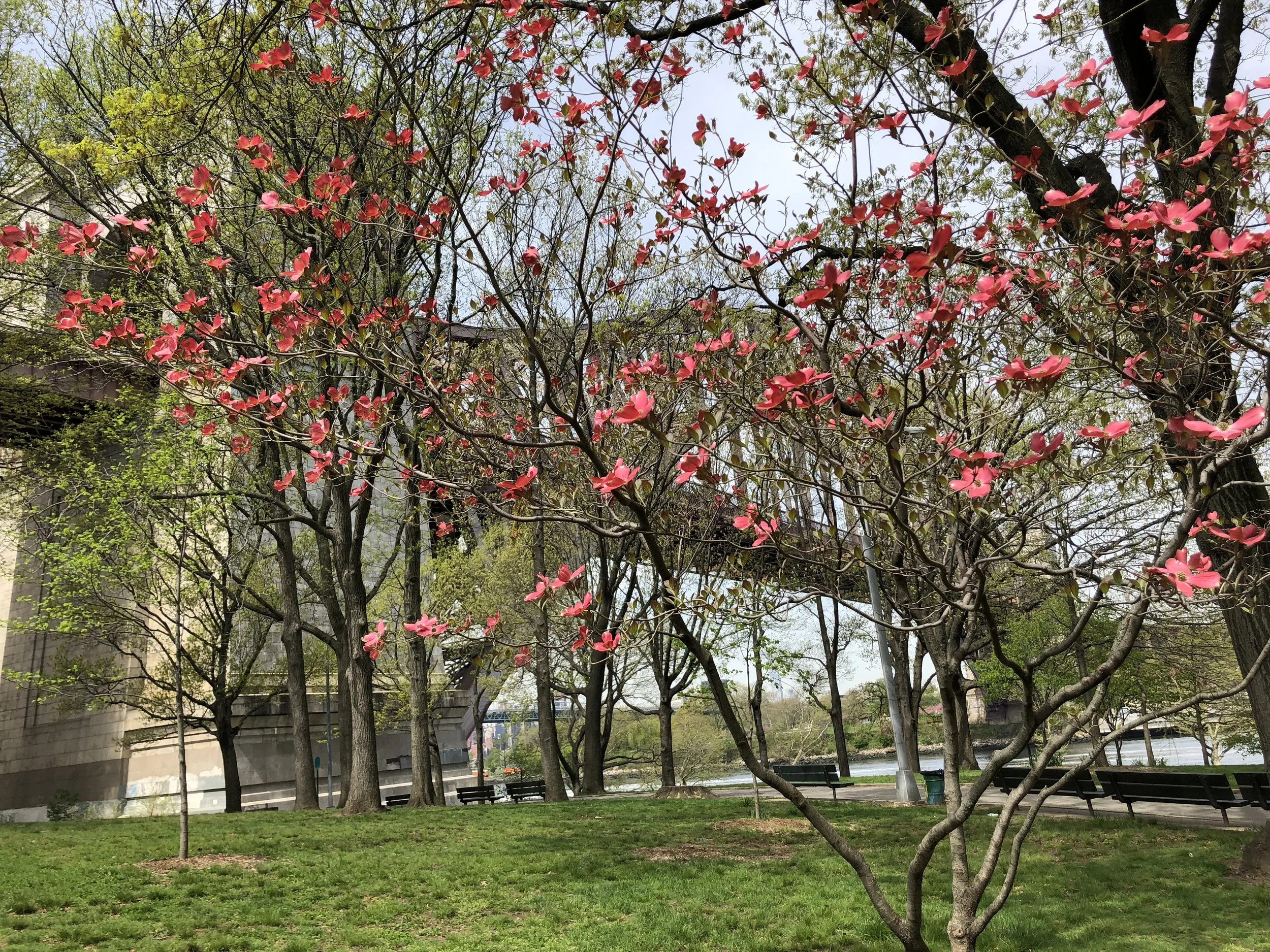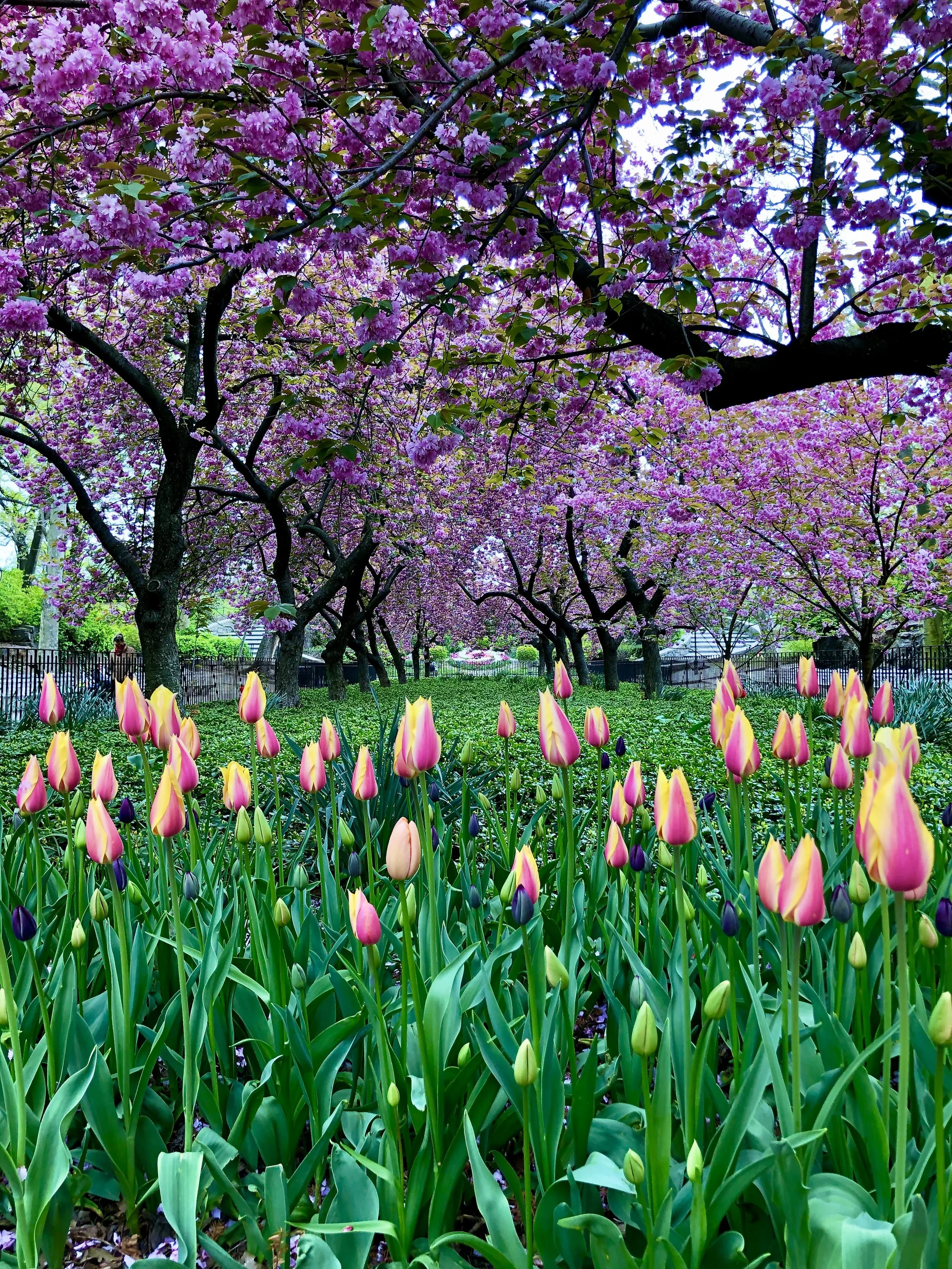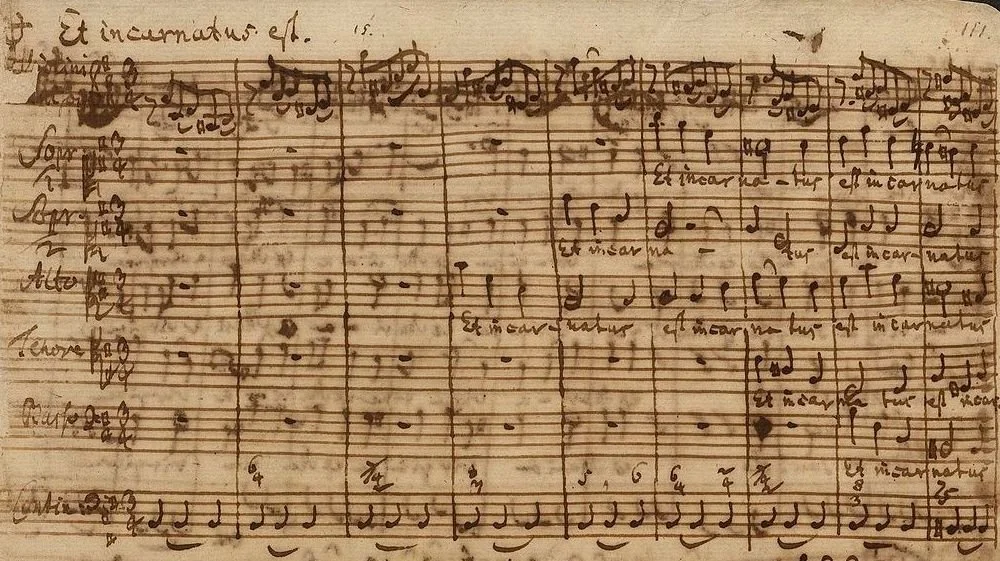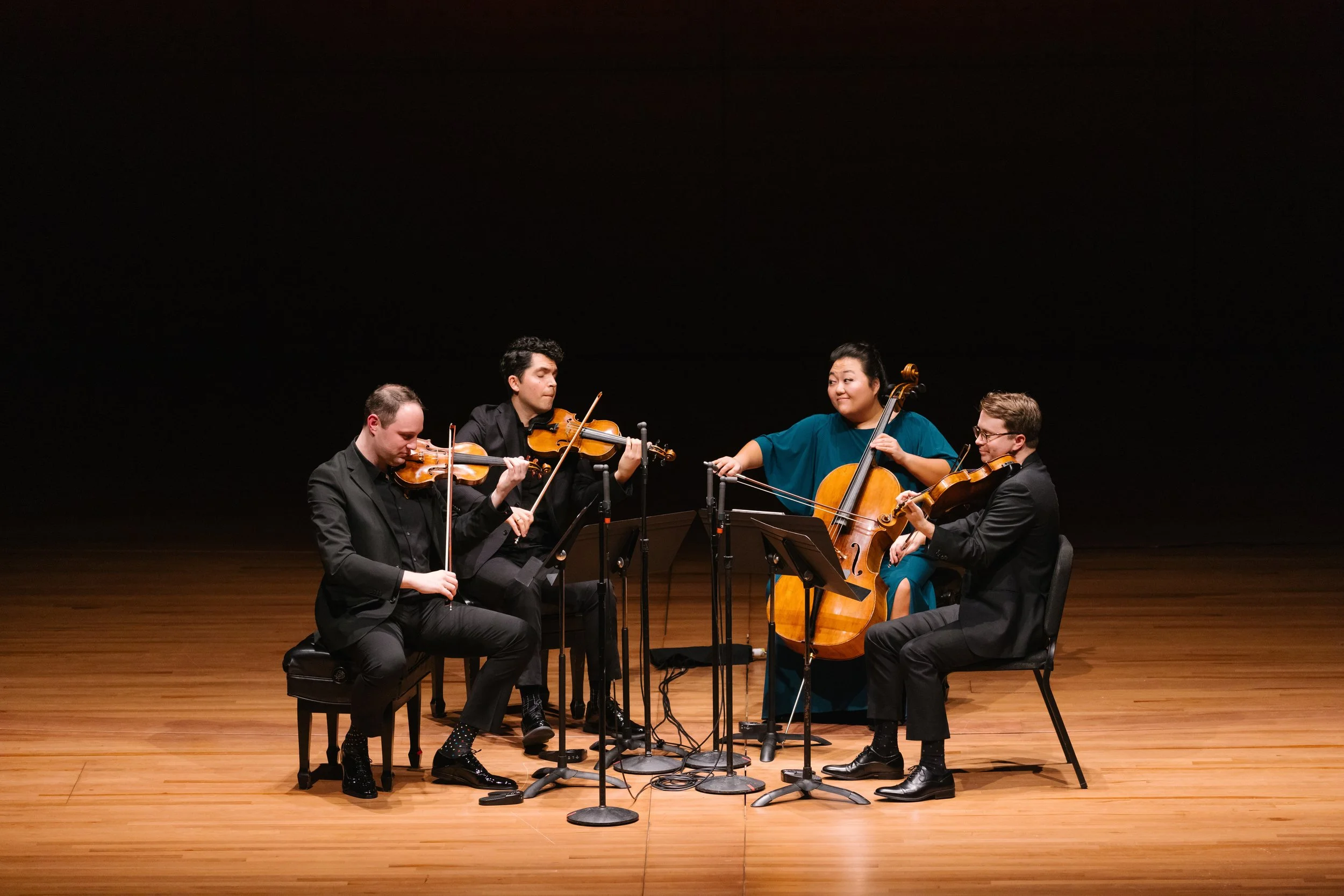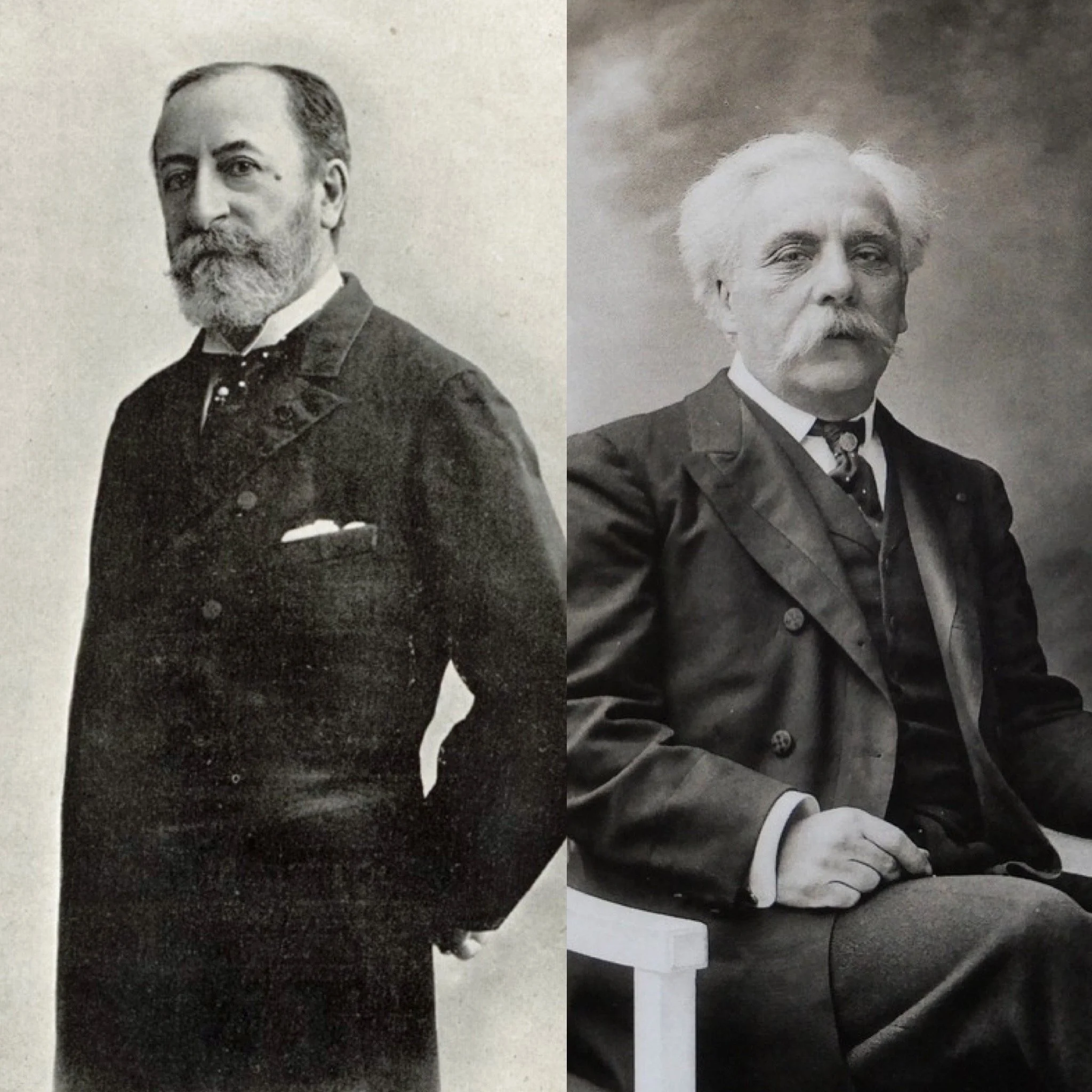CadenzaNYC’s curated highlights of NYC’s classical music events for May 2024
REVIEW: Hanzhi Wang's Revelatory Virtuosity Gains the Accordion New Fans
In the United States, if we think of the accordion at all, we are likely to have images of polka bands, French ballads, or Lawrence Welk. Perhaps we remember the Far Side cartoon whose top caption reads “Welcome to heaven, here’s your harp,” followed by “Welcome to hell, here’s your accordion.”
REVIEW: Tiergarten Transports
“Yessssss…you may applaud,” winked Kim David Smith, following his breathless opening set as Master of Ceremonies of Tiergarten, the monumental, immersive cabaret experience being staged in The Great Hall under the Church of St. Mary on the Lower East Side. One of the strongest entries in Carnegie Hall’s season-long festival examining the Weimar Republic, Tiergarten is a spectacular convergence of art and entertainment.
REVIEW: William Grant Still and the Harlem Renaissance
The Orchestra Now visited the Metropolitan Museum of Art on Sunday for an exploration of Sight & Sound: William Grant Still & and the Harlem Renaissance. Tying in with the Met Museum’s current exhibition, The Harlem Renaissance and Transatlantic Modernism, Leon Botstein and Bard University’s graduate orchestra, which draws talented student musicians from around the world, delivered an invigorating performance of the seldom heard second symphony of this little understood composer.
REVIEW: Uchida and Biss Captivate in Schubert Duets
…a program entirely of Schubert, no matter the genre, skirts a slippery slope to slumber. But, even the drowsiest listener would have been captivated by the refinement of artistry on display when Mitsuko Uchida and Jonathan Biss — co-artistic directors of the Marlboro Music Festival, and both distinguished interpreters of this literature.
REVIEW: The Soldier's Tale, with John Rubinstein, at CMS
One of the more interesting and varied concerts of the season, Chamber Music Society of Lincoln Center filled Sunday afternoon with a program of “musical tales” spanning two centuries of music and multiple disciplines, too. Tamara Mumford, assured and elegant, with the Cadillac of instruments, brought impeccable French diction, operatic poise, and accurate rhythm to Ravel’s art song settings of de Parny’s erotic and anti-colonial/anti-slavery poetry.
REVIEW: Canellakis and Ott Dazzle at New York Philharmonic
Karina Canellakis, in her New York Philharmonic debut, conducted a heady, challenging program this past week at David Geffen Hall. If there was a unifying theme in the four works, it might have been a Rashamon-like exploration of the various paths Western music took from the beginning of the Fin de Siècle to the Roaring Twenties.
REVIEW: Orion Quartet Takes a Bow
The Orion String Quartet made their exit, retiring from the concert stage after 36 years as a distinguished ensemble. Associated with Chamber Music Society of Lincoln Center for more than 30 years, their makeup unchanged for as long, and their warmly received final performance was a coveted ticket on CMS’s calendar.
PREVIEW: April's Classical Music in NYC
CadenzaNYC’s Curated List of NYC’s Classical Music highlights for the month of April 2024.
REVIEW: Schoenberg's Gargantuan Gurre-Lieder at Carnegie Hall
If the name Schoenberg brings a Pavlovian wince — a brush with the results of his innovative, atonal twelve-tone technique having left a bitter taste in your mouth — then you would not have been prepared for the plush warmth of the opening Orchestral Prelude. This game-changing composer spanned two epochs; Gurre-Lieder is a monument to his beginnings. Like Mahler and Strauss, he stretched late-Romanticism to its extremes, wrenching every drop from Western musical tropes until the music overgrew and sprawled, about to spill out of its container of traditional tonal harmony.
REVIEW: New York Philharmonic Polishes Classic Formula
As Jaap van Zweden’s term as New York Philharmonic’s Music Director enters its home stretch, the combination of a lithe orchestra, energetic conductor, adventurous soloist, and perfectly balanced programming made for the platonic ideal of the symphonic concert. Felix Mendelssohn’s The Hebrides Overture, Op. 26, a brooding tone painting (in F# Minor), followed by the journeying Mozart Piano Concerto No. 17 (in G Major), capped by the hard-earned arrival of C Major in Beethoven’s iconic Fifth Symphony .
REVIEW: A Bach B-Minor Mass With Heart
The American Classical Orchestra filled the pews of Alice Tully Hall with an enthusiastic congregation eager to submit to the religious experience that is J. S. Bach’s Mass in B-Minor, BWV 232. This massive (no pun intended) liturgical choral and orchestral work featuring five vocal soloists — towering masterpiece of the Baroque era — received a buoyant performance by Thomas Crawford’s period-instrument orchestra and fine collection of singers.
REVIEW: Nézet-Séguin Brings His Hometown Orchestra to Carnegie Hall
New York City and Montréal communed in midtown Manhattan on Wednesday night when Orchestre Métropolitain de Montréal concluded their second US tour, under the baton of their maestro of 25 years, Yannick Nézet-Séguin. C'était magnifique.
REVIEW: Vienna Philharmonic and Bruckner's Extreme Romanticism
All of this music is in the DNA of the Vienna Philharmonic, and to hear them play it is to better understand what it is about: expression. Their timbre is bright, their pitch is heightened, and their tremolos wide and dug in. But, what really comes through is the sheer joy each player exudes through their playing. This is a fearless orchestra. They go for broke.
REVIEW: The Knights, in Weimar, With a Pipa
The evening's highlight was also its big-ticket item, the world premiere of Ears of the Book, a concerto for pipa and orchestra by Pulitzer Prize-winning composer Du Yun, written for the pipa's most visible ambassador, Wu Man. Divided into ten continuous movements called "Polaroids," the piece purports to depict "moments frozen in time," with the pipa soloist as narrator.
REVIEW: Saint-Saëns and Fauré on the Menu
Chamber Music Society’s recent concert focusing on the composers Camille Saint-Saëns and Gabriel Fauré — lifelong friends and colleagues — was a time-traveler’s feast. The menu was a deftly curated series of these French doyens’ most rewarding and characteristic recipes.
REVIEW: Celebrating John Williams at Carnegie Hall
In the presence of a master, you think about ancestors and legacies — what you might call “ghosts.” The audience in Carnegie Hall understood what John Williams meant as he greeted this “iconic room,” with the Philadelphia Orchestra, and the “ghosts within the walls that fly around and sing and dance.”
REVIEW: Bruce Liu Wins Hearts in NY Phil Debut
“Hush!” The ladies seated near me in the audience of Geffen Hall were being shushed by the row in front of them. They were chattily swooning in admiration of pianist Bruce Liu, making his New York Philharmonic debut in Rachmaninov’s Rhapsody on a Theme of Paganini, as he began his second encore of the night (a transcription of Bach). A rarely performed overture by Louise Farrenc and Dvorak’s Seventh Symphony completed the evening.
